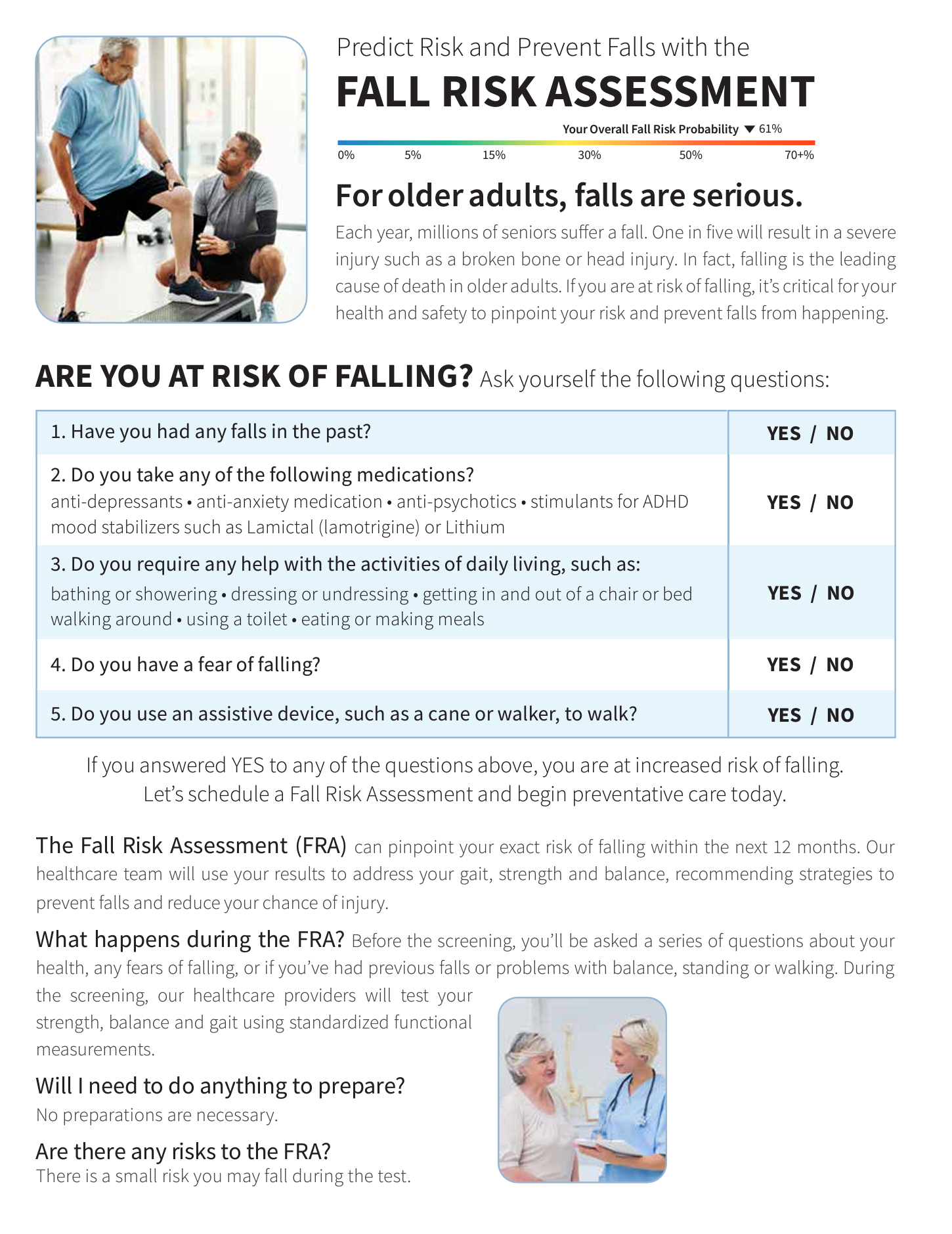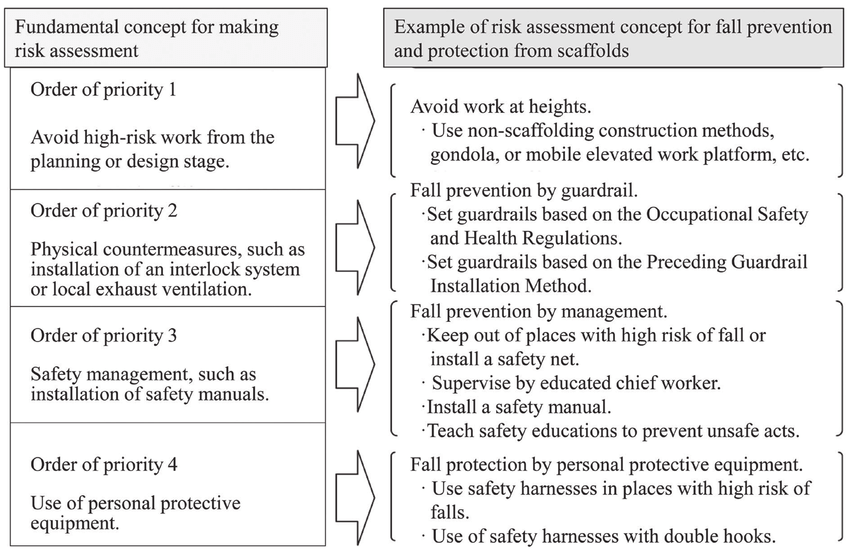5 Simple Techniques For Dementia Fall Risk
The Single Strategy To Use For Dementia Fall Risk
Table of ContentsDementia Fall Risk Can Be Fun For EveryoneSee This Report on Dementia Fall RiskLittle Known Questions About Dementia Fall Risk.Dementia Fall Risk Things To Know Before You Get This
A fall threat analysis checks to see just how likely it is that you will drop. It is mainly provided for older grownups. The evaluation normally includes: This includes a series of inquiries regarding your total health and wellness and if you have actually had previous drops or troubles with equilibrium, standing, and/or walking. These devices evaluate your toughness, balance, and stride (the way you walk).STEADI includes screening, assessing, and intervention. Interventions are referrals that might minimize your threat of falling. STEADI consists of 3 actions: you for your threat of dropping for your danger aspects that can be boosted to try to stop drops (for instance, equilibrium issues, impaired vision) to lower your threat of dropping by making use of efficient techniques (for instance, providing education and resources), you may be asked several concerns consisting of: Have you dropped in the previous year? Do you feel unsteady when standing or strolling? Are you bothered with falling?, your copyright will examine your stamina, balance, and gait, utilizing the adhering to autumn assessment tools: This examination checks your stride.
If it takes you 12 seconds or even more, it might indicate you are at higher risk for a loss. This examination checks toughness and equilibrium.
The positions will obtain more challenging as you go. Stand with your feet side-by-side. Move one foot halfway forward, so the instep is touching the large toe of your various other foot. Relocate one foot fully in front of the other, so the toes are touching the heel of your various other foot.
Dementia Fall Risk Fundamentals Explained
Most falls occur as an outcome of multiple adding elements; consequently, managing the danger of dropping begins with identifying the elements that add to drop threat - Dementia Fall Risk. Several of one of the most appropriate danger elements consist of: History of prior fallsChronic medical conditionsAcute illnessImpaired gait and equilibrium, reduced extremity weaknessCognitive impairmentChanges in visionCertain high-risk drugs and polypharmacyEnvironmental variables can additionally raise the threat for falls, consisting of: Poor lightingUneven or damaged flooringWet or unsafe floorsMissing or damaged handrails and order barsDamaged or incorrectly equipped devices, such as beds, mobility devices, or walkersImproper usage of assistive devicesInadequate supervision of individuals residing in the NF, including those that display hostile behaviorsA effective fall danger monitoring program needs an extensive scientific assessment, with input from all participants of the interdisciplinary group

The treatment strategy ought to additionally consist of interventions that are system-based, such as those that promote a secure environment (suitable lights, hand rails, get bars, and so on). The efficiency of the interventions need to be reviewed regularly, and the care strategy revised as required to mirror modifications in the fall danger analysis. Implementing a loss threat monitoring system utilizing evidence-based finest practice can minimize the check here frequency of drops in the NF, while restricting the possibility for fall-related injuries.
Getting My Dementia Fall Risk To Work
The AGS/BGS guideline advises screening all grownups matured 65 years and older for fall risk each year. This screening includes asking clients whether they have actually fallen 2 or even more times in the previous year or sought clinical focus for an autumn, or, if they have not dropped, whether they feel unstable when strolling.
People who have actually dropped as soon as without injury needs to have their balance and stride assessed; those with stride or balance abnormalities should obtain added evaluation. A background of 1 fall without injury and without stride or balance issues does not call for additional analysis past continued yearly autumn danger screening. Dementia Fall Risk. A fall threat assessment is required as component of the Welcome to Medicare assessment

Some Known Details About Dementia Fall Risk
Documenting a drops history is one of the high quality signs for fall avoidance and management. copyright medicines in certain are independent predictors of drops.
Postural hypotension can often be reduced by minimizing the dosage of blood pressurelowering medicines and/or quiting medicines that have orthostatic hypotension as a side result. Usage of above-the-knee assistance hose pipe and sleeping with the head of the bed raised might likewise reduce postural decreases in high blood pressure. The recommended components of a fall-focused checkup are displayed in Box 1.

A TUG time greater than or equal to 12 seconds suggests high fall threat. The 30-Second Chair Stand examination assesses lower extremity stamina and balance. Being incapable to stand from you could try here a chair of knee height without utilizing one's arms indicates boosted autumn threat. The 4-Stage Balance test examines fixed balance by having the person stand in 4 placements, each gradually much more tough.